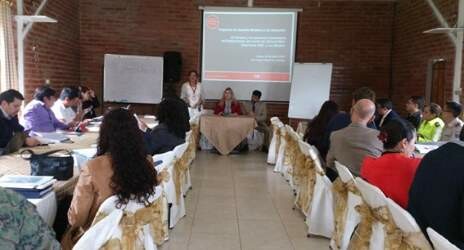
On April 20, Ecuadorian authorities and civil society met at a “Conference for the implementation of rules for facilitating international humanitarian assistance operations in Ecuador” organized in Quito with support from the Ecuadorian Red Cross. This conference was the latest in a series of events following up on the recommendation of a study published by the Ecuadorian Red Cross in 2013.
The original study was developed with the oversight of a “Working Group on Strengthening Legal Preparedness for International Disaster Assistance in Ecuador,” led by the national Secretariat for Disaster Risk Management (SGR) and including participants from the National Assembly, the Coordinating Minister for Security, the Ministry of Foreign Affairs, the Ministry for Health, the Technical Secretariat for International Cooperation, the United Nations and the Ecuadorian Red Cross.
Among the findings of the study was the lack of any special provisions for facilitating and regulating relief flights in the case of disasters. It recommended the development of special rules to facilitate rapid operation, overflight and landing of such flights.
Accordingly, at the April conference, authorities announced that specific provisions related to disasters have been added to in the “Regulation on Operating Permissions for the Delivery of Aviation Transport Services” (Official Registry No. 397 of 16 December 2014). Section 4 of this Regulation now states that, “in cases of emergency declared by the competent authority, the entry, exit and transit of humanitarian assistance delivered by, or on behalf of recognized international organizations or states shall be facilitated. The National Council on Civil Aviation and General Directorate of Civil Aviation shall adopt the necessary measures to guarantee the security of these operations and shall provide operational facilities.” This reform now joins the existing rule under articles 26-28 of the Aviation law providing for waiver of landing fees, installations and protection services for relief flights.
It was also noted that Ecuador has a number of relevant agreements on this topic with neighbouring countries. A joint “Regulation on Transit of Persons and Land Vehicles” has been developed with Peru. With Colombia, a general agreement has been with regard to the transport of persons, vehicles, ships and airplanes, which calls for special considerations in the case of “mutual assistance in the event of disasters”. Ecuador and Colombia have agreed to continue to develop more detailed regulations in relation to this agreement.